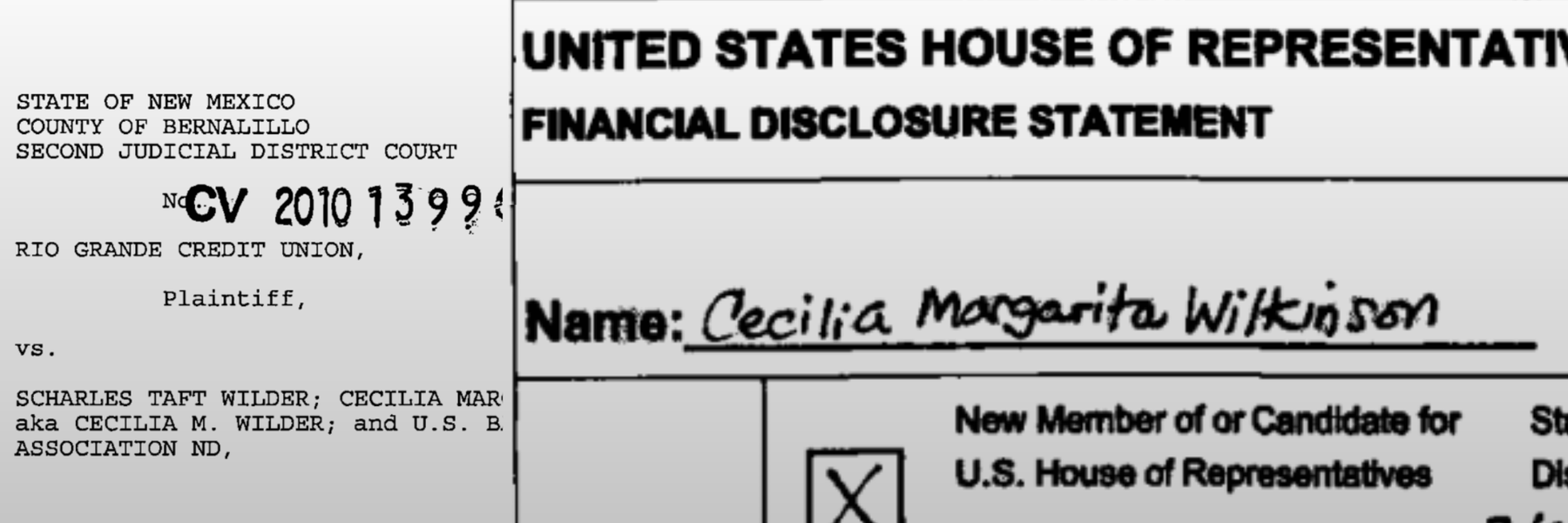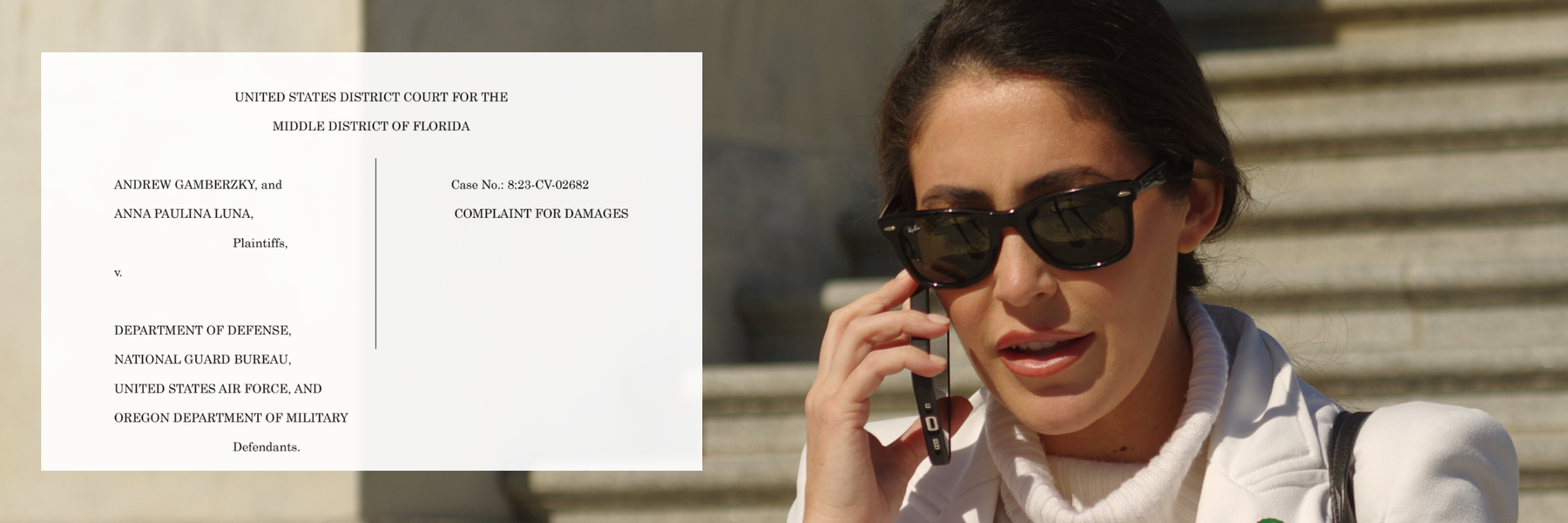In this week’s FOIA roundup, a great case study of combining public records with other journalistic tools, an important step towards greater Congressional transparency, and a chance to collaborate with your peers, just in time for FOIA Friday.
Send over your favorite FOIA stories via email, on Twitter, or on Facebook, and maybe we’ll include them in the next roundup.
FOIA breaks the story … along with a key source, data analysis, and shoe leather
Reporting for the Florida Times-Union, Ben Conarck has an important story showing how a mandated crackdown on prison contraband led to an unprecedented number of strip searches, including for the elderly and disabled, with little to show for it:
The crackdown, however, has extended to women who have done nothing more than attempt to visit their loved ones in prison. There is little evidence to justify their hardships. Former corrections officials and prison researchers generally agree that visitors are less likely sources of contraband than officers and staff. […] There were 121 searches in July, the first month of the initiative, yet the corrections department documented only a single incident of a visitor possessing contraband in that time — a man was found with “drug paraphernalia” in his vehicle after a K-9 alerted to it. He was not arrested.
Conarck’s reporting blends the meticulous use of public records, data analysis, and over a dozen interviews with individuals he was able to contact by following up on responses to his records requests.
What he found was that underwire bras appeared to erroneously set off cell phone detection equipment, leading to visitors either having to forfeit their visitation altogether or subject themselves to a strip search. In some cases, even after the search, they’re still denied visitation even though no contraband is found.
In a Twitter thread, Conarck shared his process for getting the document and telling the visitors’ stories:
In search of prison contraband, the Florida Department of Corrections started strip searching female visitors wearing underwire bras -- hundreds of them at a local facility and likely thousands more across the state. Here's how I reported the story: https://t.co/u7EVPIVi6u
— Ben Conarck (@conarck) March 21, 2018
A reader/Twitter follower who had a boyfriend at Baker C.I. texted me to let me know about long lines and strip searches at the facility. We spoke briefly, and several weeks later reconnected. That's when I learned about the consent forms.
— Ben Conarck (@conarck) March 21, 2018
The tipster told me every woman signed one, so I put in a request for a year's worth. 197 forms came back. They dated back only to July. The documents looked like this: pic.twitter.com/pYkTXAdXrv
— Ben Conarck (@conarck) March 21, 2018
Over the course of three or four weeks, I drove around Jacksonville leaving handwritten notes and knocking on doors. Seventeen women shared their experiences with me. Most of them agreed to speak only on the condition of anonymity.
— Ben Conarck (@conarck) March 21, 2018
Here's one visitor's description of the process:
— Ben Conarck (@conarck) March 21, 2018
"They took me in the back and they have a little partition in there. They got a wand. You take your pants off. They have to hold on to everything. They don’t give it back to you. I gave them my pants …
" ... and then I gave them my shirt. Then I had on a t-shirt, and then I had to take it off. And they wanted it. I had to take my bra off and they wanded that too."
— Ben Conarck (@conarck) March 21, 2018
The search process became clear from the interviews. Then we sought out more documentation: arrest records, contraband incident reports, summary-level data on contraband ,etc.
— Ben Conarck (@conarck) March 21, 2018
A transparency hack gets closer to becoming the law
The Congressional Research Service is a taxpayer-funded bipartisan “think tank” researching issues at the behest of Congress. While the reports are generally highly regarded, they’re only available to the public if actually shared by a member of Congress: CRS has no transparency mechanism of its own, given that the legislative branch is exempt.
Since 2016, Every CRS Report has used a workaround to create a public database of all non-confidential CRS reports: Two volunteers from Congress (a Democrat and a Republican) share a copy of every report posted to the private website that hosts the reports.
A joint effort by Demand Progress and the R Street Institute, it highlights the bipartisan, public value the reports provide. That website might soon be obsolete, however, as the recent Omnibus bill mandates the reports get posted online for everyone, as Daniel Schuman, one of the driving forces behind Every CRS Report, notes:
At long last, CRS reports are on their way to being publicly available to all. Thanks to @RepMikeQuigley @RepLanceNJ7 @RepKevinYoder @RepTimRyan for your leadership in the House. Thank you @SenatorLeahy @SenJohnMcCain for fighting for access for 20 years. #omnibus pic.twitter.com/CUilI0DSQf
— Daniel Schuman (@danielschuman) March 22, 2018
But advocates are not quite ready to declare victory. Every CRS Report has a thread on what the provision actually means and areas for improvement down the road:
Some people have seen tweet reports that Congress may start publishing CRS reports. Here’s some background:
— Every CRS Report (@EveryCRSReport) March 22, 2018
1/ Good language is included in the omnibus. But it’s not law yet and things can still change.
2/ Even if enacted CRS/LC has between 90-180 days to implement
Of course, a veto by the president would scrap any reform until another day, and that seems a real possibility.
The controlled chaos of a snow day
Ever wonder what goes on behind the scenes when calling off school? Perry Stein found out, reporting for the Washington Post.
Using emails received through a public records request, Stein gave an inside look at the chaos, negotiations, and inevitable disappointment that can make or break children’s dreams and parents’ mornings:
The 120 charter schools in the District usually follow the traditional public school system’s lead on whether to close schools. Some charter leaders emailed Antwan Wilson, who was chancellor of D.C. Public Schools at the time, throughout the day on Jan. 3 asking when he would decide their fate.
“Checking on your threshold for cold weather,” Susan Schaeffler, the chief of the charter school network KIPP DC, wrote in an email to Wilson the afternoon of Jan. 3. “Feel free to send me any intel so I can direct our 6000 child commuters the best we can.”
Wilson responded that the school system tries to decide on canceling classes by 11 the night before. Ultimately, he wrote, the decision belongs to Mayor Muriel E. Bowser, who takes into account the chancellor’s recommendation. City leaders base their decisions to close school and government offices on calls with weather experts who update them on the forecast.
Join our FOIA Friday Slack Chat
Feeling inspired by these stories? Join us today at noon Eastern for our next Slack chat, with special guest Matt Topic.
Seen a great FOIA-based news story we missed? Let us know and maybe we can include it in our next round up! Send it over via email, on Twitter, or on Facebook.
Image by Chris Sampson via Flickr and licensed under CC-BY 2.0
This article has been corrected to remove a reference stating that no arrests had been made in conjunction with strip searches at Baker Correctional Institute and to correct a misspelled name.




